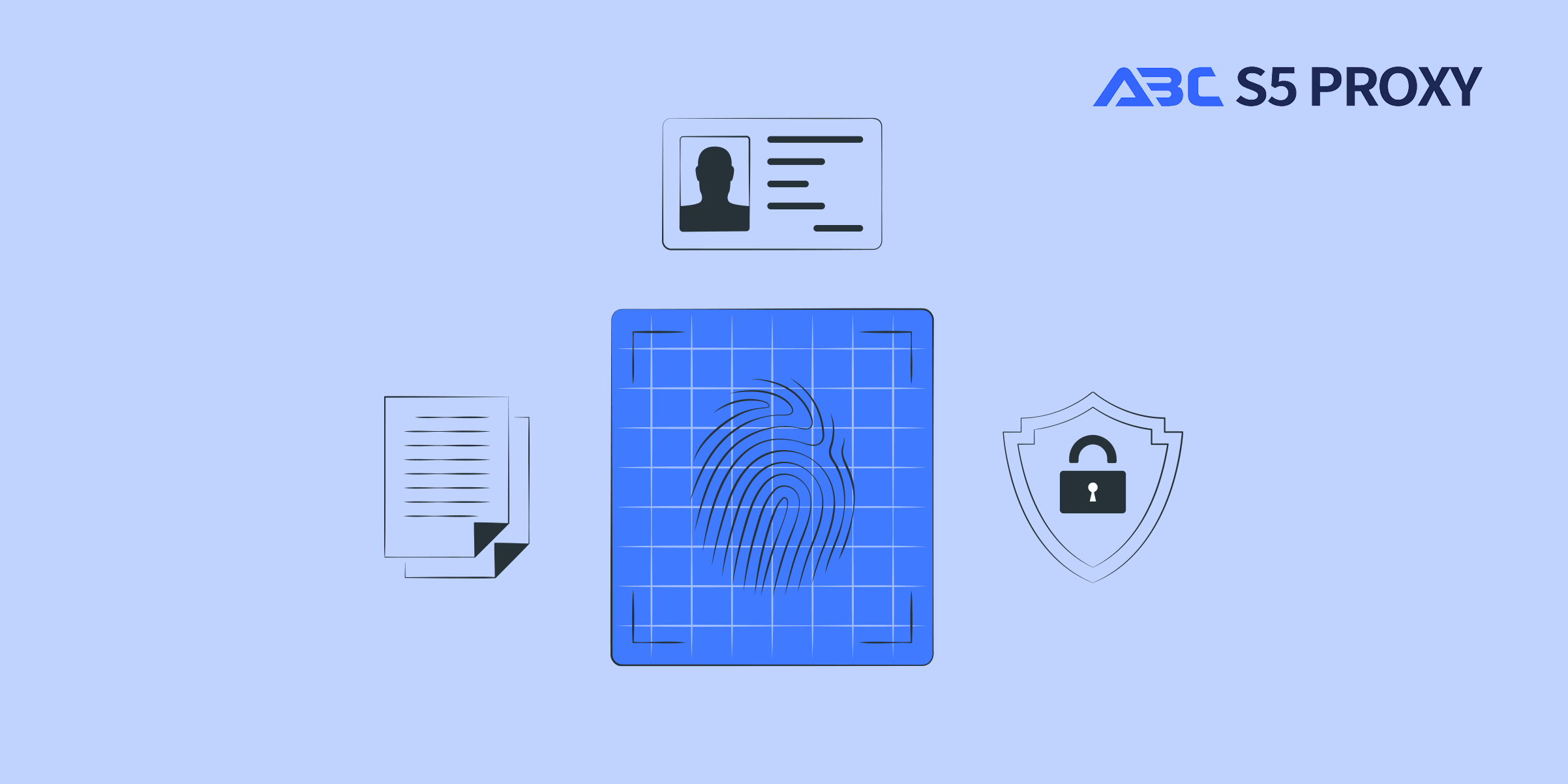Residential Proxies
Allowlisted 200M+ IPs from real ISP. Managed/obtained proxies via dashboard.

Proxies
Residential Proxies
Allowlisted 200M+ IPs from real ISP. Managed/obtained proxies via dashboard.
Residential (Socks5) Proxies
Over 200 million real IPs in 190+ locations,
Unlimited Residential Proxies
Use stable, fast, and furious 700K+ datacenter IPs worldwide.
Static Residential proxies
Long-lasting dedicated proxy, non-rotating residential proxy
Dedicated Datacenter Proxies
Use stable, fast, and furious 700K+ datacenter IPs worldwide.

Web Unblocker
View content as a real user with the help of ABC proxy's dynamic fingerprinting technology.
Proxies
API
Proxy list is generated through an API link and applied to compatible programs after whitelist IP authorization
User+Pass Auth
Create credential freely and use rotating proxies on any device or software without allowlisting IP
Proxy Manager
Manage all proxies using APM interface

Proxies
Residential Proxies
Allowlisted 200M+ IPs from real ISP. Managed/obtained proxies via dashboard.
Starts from
$0.77/ GB
Residential (Socks5) Proxies
Over 200 million real IPs in 190+ locations,
Starts from
$0.045/ IP
Unlimited Residential Proxies
Use stable, fast, and furious 700K+ datacenter IPs worldwide.
Starts from
$79/ Day
Rotating ISP Proxies
ABCProxy's Rotating ISP Proxies guarantee long session time.
Starts from
$0.77/ GB
Static Residential proxies
Long-lasting dedicated proxy, non-rotating residential proxy
Starts from
$5/MONTH
Dedicated Datacenter Proxies
Use stable, fast, and furious 700K+ datacenter IPs worldwide.
Starts from
$4.5/MONTH
Knowledge Base
English
繁體中文
Русский
Indonesia
Português
Español
بالعربية

Title: The Impact of Anonymous Proxy Detection on Online Security
In today's digital age, the use of anonymous proxies has become increasingly prevalent among internet users seeking to protect their online privacy and bypass restrictions. However, the detection of anonymous proxies by websites and online services has raised concerns about security vulnerabilities and potential risks. The message "Anonymous Proxy Detected" often serves as a red flag for website administrators, signaling the presence of a user trying to conceal their true identity or location. In this blog post, we will delve into the implications of anonymous proxy detection on online security and explore how it impacts both users and website owners.
Anonymous proxies act as intermediaries between a user's device and the internet. By routing internet traffic through a remote server, these proxies mask the user's IP address and location, providing a layer of anonymity. This can be useful for users seeking to access geo-restricted content, evade censorship, or protect their privacy from trackers and monitoring.
While the use of anonymous proxies can offer benefits in terms of privacy and access, it also poses potential risks. Websites that detect the presence of an anonymous proxy may view the user as suspicious or engage in behavior that violates the site's terms of service. This can lead to restrictions, account bans, or even legal consequences in some cases.
The detection of anonymous proxies plays a crucial role in maintaining online security. Websites rely on accurate user data to assess risks, prevent fraudulent activities, and ensure a safe browsing environment. When anonymous proxies are detected, it becomes challenging for website administrators to verify the identity and intentions of users, potentially exposing the site to security threats such as malicious attacks, data breaches, and account takeovers.
From a user perspective, encountering the message "Anonymous Proxy Detected" can be frustrating, especially for those who use proxies for legitimate reasons. It may hinder access to certain websites, services, or content, limiting the overall online experience. Additionally, users may face inconvenience in proving their legitimacy or resolving issues arising from proxy detection mechanisms.
To address the challenges posed by anonymous proxy detection, both users and website owners can adopt proactive measures. Users can opt for more transparent proxy services or consider alternative methods to safeguard their privacy without triggering proxy detection mechanisms. Website administrators, on the other hand, can implement robust security protocols, monitor suspicious activities, and collaborate with cybersecurity experts to enhance detection capabilities.
In conclusion, while the use of anonymous proxies can serve valid purposes, the detection of such proxies raises significant concerns regarding online security and trustworthiness. It is essential for both users and website owners to understand the implications of proxy detection and take proactive steps to mitigate risks. By balancing privacy concerns with security considerations, we can strive towards a safer and more reliable online environment for all internet users.
Remember, transparency and accountability are key in navigating the complex landscape of online security and privacy. Let's work together to uphold these values and foster a secure digital ecosystem for everyone.
Featured Posts
Popular Products
Residential Proxies
Allowlisted 200M+ IPs from real ISP. Managed/obtained proxies via dashboard.
Residential (Socks5) Proxies
Over 200 million real IPs in 190+ locations,
Unlimited Residential Proxies
Use stable, fast, and furious 700K+ datacenter IPs worldwide.
Rotating ISP Proxies
ABCProxy's Rotating ISP Proxies guarantee long session time.
Residential (Socks5) Proxies
Long-lasting dedicated proxy, non-rotating residential proxy
Dedicated Datacenter Proxies
Use stable, fast, and furious 700K+ datacenter IPs worldwide.
Web Unblocker
View content as a real user with the help of ABC proxy's dynamic fingerprinting technology.
Related articles

How does the ChatGPT RAG example improve information processing capabilities
Analyze the actual application scenarios of ChatGPT combined with Retrieval Augmented Generation (RAG) technology, explore its value in knowledge integration and data acquisition, and understand how abcproxy provides underlying support for the RAG system.

How does Best Socks5 Proxy ensure anonymous network needs
This article explores the core value of Socks5 proxy in anonymous networks and analyzes how abcproxy high anonymous proxy meets diverse security needs.

How to remove website access restrictions
This article analyzes the technical principles and mainstream solutions of website access restrictions, and explores the core role of proxy IP in bypassing regional blocking and anti-crawling mechanisms. abcproxy provides multiple types of proxy IP services to help you break through network restrictions efficiently.